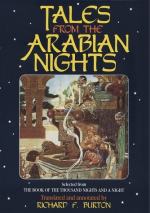4. The story of Joseph, beginning Gen. xxxvii. 2, gives us the dates in his life; viz., 17 when sold, 30 when he becomes Prime Minister, 40 when his father joins him.
5. 1 Chron. vi. 1-15 (Lineage of Ezra’s brother Jehozadak, abounding in repetitions and worthless).
1. As between the two, the column A. is in my opinion more trustworthy than B.
2. By all the genealogies of the Davidian line we have Judah No. 1, Solomon No. 12. By Ezra’s genealogy of his own family we have Levi No. 1, and Azariah (Solomon’s High Priest) No. 12. They agree perfectly.
3. If there were 400 years of Hebrew (Bene Jacob) slavery between the death of Joseph and the Exodus, there were 400 — 80 = 320, between Joseph’s death and the birth of Moses. If this was so there is no truth in the accounts of Moses and Aaron being the great-grandchildren of Levi (Levi, Kohath, Amram, Aaron and Moses). In fact, if Dr. Robinson be correct in saying that at least six generations are wanting in the genealogies of David (to fill the 400 years) the same must be lacking in all the early genealogies. Reductio ad absurdum!
4. Jacob, a young man, we will say of 40, is sent to Laban for a wife. He remains in Padan Aram twenty years (Gen. xxxi. 38), where all his sons except Benjamin were born, that is, before he was 60. At 130 he joined Joseph in Egypt (Gen. xlvii. 9). Joseph, therefore, born in Padan Aram was now, instead of 40, over 70 years old! That this is so, is certain. In Judah’s exquisite pleadings (Gen. xliv. 18-34) he speaks of Benjamin as “the child of Jacob’s old age,” “a little one,” and seven times he calls him “the lad.” Benjamin is some years younger than Joseph, but when the migration into Egypt takes place-a few weeks after Judah’s speech-Benjamin comes as father of ten sons (Gen. xlvi. 21), but here Bene Benjamin is used in its broad sense of “descendants,” for in 1 Chron. vii. 6-12 we find that the “Bene” were sons, grandsons and great-grandsons. To hold that Joseph at 40 had a younger brother who was a great-grandfather, is, of course, utterly absurd.
5. According to Gen. xv. 18, the Exodus was to take place in the fourth generation born in Egypt, as I understand it.
Born in Egypt:—
Levi (father of) Kohath Judah
(father of) Pharez
Hezron
1. Amram 1. Ram 2. Aaron 2. Amminadab 3. Eleazar 3. Nahshon 4. Phinees 4. Salma
A conspicuous character in Numbers (xiii. 6, 30; xiv. 24, etc.) is Caleb. In the first chapter of Judges Caleb still appears, and Othniel, the son of his younger brother Kenaz, is the first of the so-called Judges (Jud. iii. 9). This also disposes of the 400 years and confirms the view that the Exodus took place in the fourth generation born in Egypt. Other similar proofs may be omitted—these are amply sufficient.




